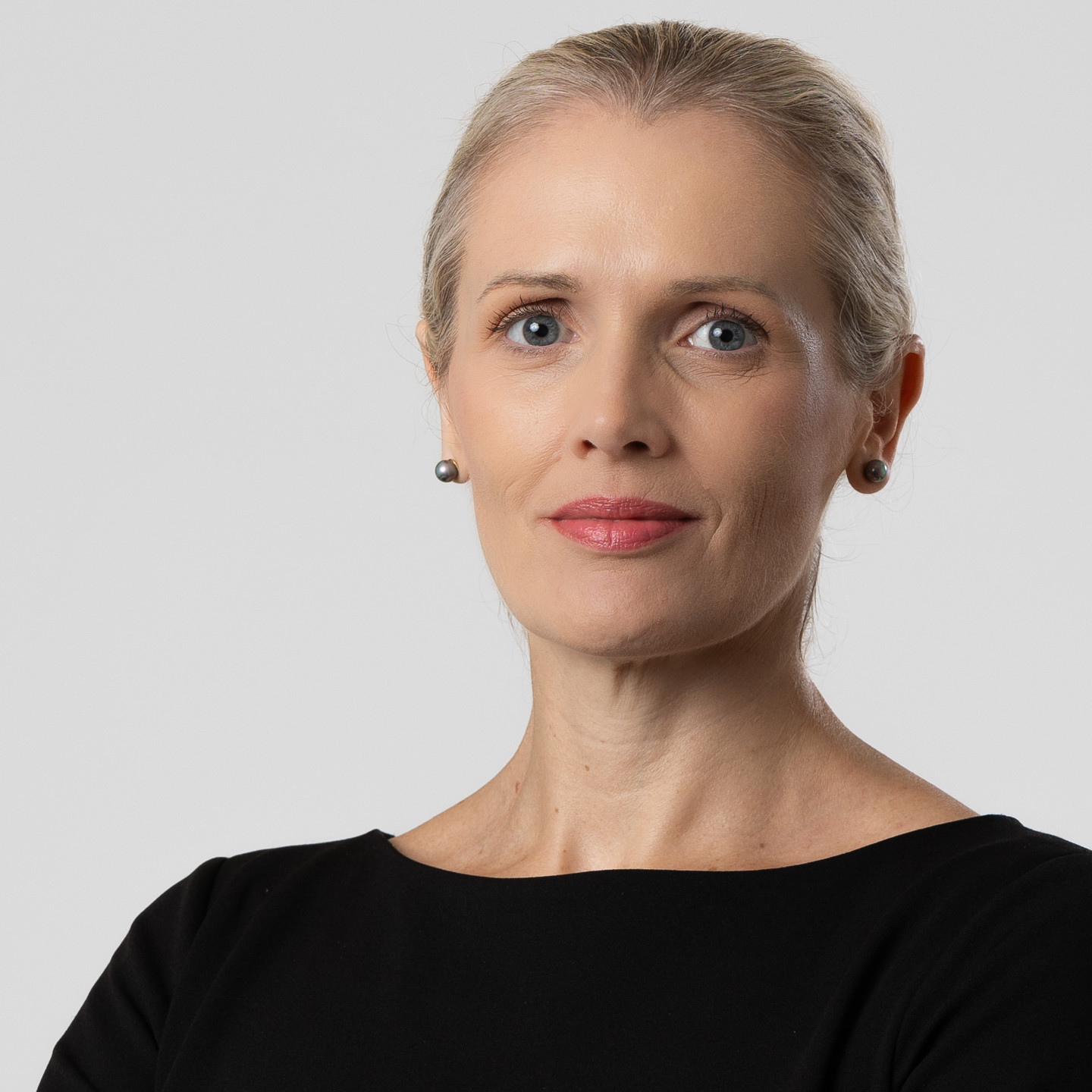
Jennifer Fox
Partner | Legal
Cayman Islands

Jennifer Fox
Partner
Cayman Islands
No Content Set
Exception:
Website.Models.ViewModels.Components.General.Banners.BannerComponentVm
A version of this article first appeared in WealthBriefing's OffshoreRed - October 2019 Volume 24 Number 9
In previous years we saw a few particular areas of major interest emerge, but the past year has been a year of wide variety. This has been one of our busiest years for dispute resolution and we and other Cayman lawyers have been involved in a broad range of large, complex contentious cases, including commercial litigation, restructuring and insolvency, trusts, regulatory fields, professional negligence cases (both for plaintiff and defendant), proceeds of crime cases (for institution and for customer) and other contentious disputes. We are also seeing the continuation of disputed valuation cases in connection with the squeeze-out of minority shareholders of Cayman companies – usually to facilitate a company’s subsequent public offering in China.
Notably, Ogier has been involved in more Beddoe applications engaging some interesting issues (named after the case of Re Beddoe, Downes v Cottam [1893] 1 Ch 547 (CA)) over the past year. As you may know, these are applications by trustees for directions from a court when a trust has become involved in litigation or other proceedings. Each case comes with its own varied fact pattern but in a typical case a Cayman trust has somehow become involved in overseas proceedings and its trustee asks a Cayman court for directions about how to proceed. If the trustee subsequently acts in accordance with the court’s direction, it will be protected in respect of its legal costs because the order acts as an indemnity for such costs from the assets in the trust. Interestingly, in November 2019 Ogier successfully obtained Beddoe relief for a trustee permitting it to challenge the jurisdiction of the Singapore courts, where a Singapore court was being asked to terminate the Cayman law governed trust, remove the trustee, and pay the majority of the trust fund to a discretionary beneficiary. Kawaley J declared that "An order of a foreign court…directing a distribution from the Trust, ordering termination of the Trust or changing the trustee of a Trust, where such order does not result from the application of Cayman Islands law will not be enforced or recognised or give rise to any estoppel in the Cayman Islands." Recognising both the firewall protections and the common law principle that a foreign judgment would not be enforced where it conflicts with public policy, the court held that the declaration was justified as it would be "manifestly contrary to public policy of the Cayman Islands to recognise or give effect to an attempt by a foreign court to effectively administer a Cayman Islands trust without applying Cayman Islands law."
In addition to the spike in Beddoe applications we are also working on a number of significant restructurings of the substantial trust structures of ultra-high net worth clients. Because the assets that they hold in these structures (which includes trading businesses across the globe) are so complex, we have to take great to ensure that they avoid unintended adverse consequences. Some restructurings have also necessitated an application to a court to give its blessing to a ‘momentous’ decision that the trustee wants to take as part of the restructuring or perhaps to resolve any uncertainty about his/its entitlement to pursue a particular course of action.
Finally, we have seen a rise in demand for lawyers to give expert evidence in foreign proceedings or arbitrations on a variety on Cayman trust-law issues.
Law firms’ restructuring teams have been busy giving advice in the Cayman Islands about schemes of arrangement as a means to restructure corporate groups.
They have also been helping client firms with cross-border restructurings in the British Virgin Islands (and in the process obtaining ground-breaking relief for those clients). Ogier’s BVI disputes team acted for Brazilian oil and gas services group, Constellation Oil Services SA (and the office holders, once appointed), in a US$2 billion restructuring that was the BVI’s first ‘soft touch’ provisional liquidation. This type of proceeding happens when provisional liquidators are appointed to assist a restructuring alongside company management rather than as a prelude to the terminal liquidation of the company or corporate group in question. In this case, the restructuring involved engaging with numerous categories of creditors and bondholders, as well as litigation with a minority shareholder regarding a $400 million loan.
On the subject of Cayman Islands insolvencies, the number of petitions is stable and not increasing dramatically but we have seen an increase in the number of companies seeking to take advantage of the automatic moratorium on claims that is effective when restructuring officers are appointed over the company. The disputes team has also been busy since June 2018 assisting the conflict director of the general partner and the investors’ council of Neoma Private Equity Fund IV LP (formerly known as Abraaj Private Equity Fund IV LP) to navigate the collapse into insolvency of the single largest Middle Eastern private equity group, namely the Abraaj Group, said at one time to have had US$12 billions’ worth of assets under management (AuM).
The liquidations arising out of the collapse of the Abraaj group are still in progress and various individuals in the Abraaj Group have been indicted by the US Department of Justice and subjected to a complaint by the Securities and Exchange Commission. Dubai’s regulator has fined two central companies in the group a record US$315 million for the wrongdoing that it identified.
As regards the pipeline of future work, recent perturbations in the world economy have led to an increase in enquiries from funds in some form of distress or from investors in connection with such funds. Although this has not led to a downturn in fund formations (indeed, the Cayman Islands have benefited strongly from a “flight to quality” of fund firms from less established jurisdictions), we expect to see an increase in this area of work and insolvency filings will ultimately follow.
Ogier’s Cayman and Hong Kong dispute teams represent several established funds in fair value proceedings in the Cayman courts against Cayman incorporated companies that are predominantly NYSE/Nasdaq listed companies and hold operating subsidiaries in the People’s Republic of China. These proceedings arise out of merger transactions (usually a ‘take private’ merger) in which the Cayman courts have to determine the fair value of the shares of a shareholder that dissents from the merger. These proceedings typically involve hard-fought interlocutory applications and extensive exercises in discovery, along with analysis of complex expert valuation evidence.
Fraud is often involved in the contentious legal work of the Cayman Islands and some monumental fraud cases have come before the Cayman courts in recent years. Most notably, the Algosaibi litigation in the Cayman Islands involved a fraud claim for US$9.2 billion and resulted in a trial lasting a little over a year (which presently holds the record for the longest trial).
Usually against the background of a fraud-related fact pattern, law firms are being asked to seek injunctions (including urgent worldwide freezing orders) from the Cayman Islands courts in support of either intended proceedings in the Cayman Islands or proceedings that are going to take place elsewhere. As regards the latter type, the statutory position in the Cayman Islands changed five years ago with the introduction of section 11A Grand Court Law (2015 Revision) which gave a statutory footing to the courts to grant interim relief (including the appointment of receivers or an injunction) in the Cayman Islands in support of foreign proceedings which have (or are about to) commence in a court outside the islands. This is available in circumstances where there are no substantive proceedings in the Cayman Islands.
Until May 2020, a parallel could be seen in the British Virgin Islands, where Black Swan orders were frequently made. Black Swan orders were similar to freezing orders and could attach to property in the BVI (which included the shares of BVI companies). They were usually sought in support of foreign proceedings even if no substantive relief was sought in the BVI, in an attempt to secure assets from dissipation pending trial. However on 29 May 2020 the Eastern Caribbean Supreme Court, Court of Appeal found that the BVI court has no jurisdiction to grant free-standing freezing orders against a BVI company where no substantive relief was being sought in the BVI and the injunction was solely for the purpose of preventing the dissipation of assets in the BVI.
Given the worldwide use of Cayman Islands companies and other vehicles, there is almost always is a cross-border aspect to the work we do. This can be recently demonstrated in our restructuring of South American oil and gas drilling corporate groups that involves the laws of the Cayman Islands, the BVI, the United States and Luxembourg and the appointment of liquidators over Cayman entities in support of Guernsey liquidators’ efforts to recover lost value for investors arising out of a complex fraud involving a Guernsey fund. There are numerous other such examples.
The Cayman Islands has recently seen the complex cross-border Ocean Rig matter, which was one of the world’s largest ever restructurings. Ocean Rig is a leading international contractor of offshore deep-water drilling services and, as a result of the decline in oil and gas prices and other changes in the offshore drilling sector, the Ocean Rig group needed to take urgent steps to implement a restructuring of approximately US$3.7 billion of debt (plus accrued interest) to manage liquidity and to stabilise its business. Ogier acted for the office holders in this 'light touch provisional liquidation'. The Ocean Rig companies migrated to the Cayman Islands from the Marshall Islands to allow the group to take advantage of this useful restructuring tool and successful schemes of arrangement were approved by the Cayman court.
We expect to see an increase in restructuring and insolvency work in all of our jurisdictions over the coming months, including consensual re-financings without the need for court involvement. In addition, the Financial Action Task Force, the world’s anti-money-laundering standard-setter brought out its ‘mutual evaluation’ of the Cayman Islands last year. Since then, the Cayman Islands Monetary Authority has been particularly active. We also therefore expect to see more regulatory work flowing from that activity.
Ogier is a professional services firm with the knowledge and expertise to handle the most demanding and complex transactions and provide expert, efficient and cost-effective services to all our clients. We regularly win awards for the quality of our client service, our work and our people.
This client briefing has been prepared for clients and professional associates of Ogier. The information and expressions of opinion which it contains are not intended to be a comprehensive study or to provide legal advice and should not be treated as a substitute for specific advice concerning individual situations.
Regulatory information can be found under Legal Notice
Sign up to receive updates and newsletters from us.
Sign up
No Content Set
Exception:
Website.Models.ViewModels.Blocks.SiteBlocks.CookiePolicySiteBlockVm